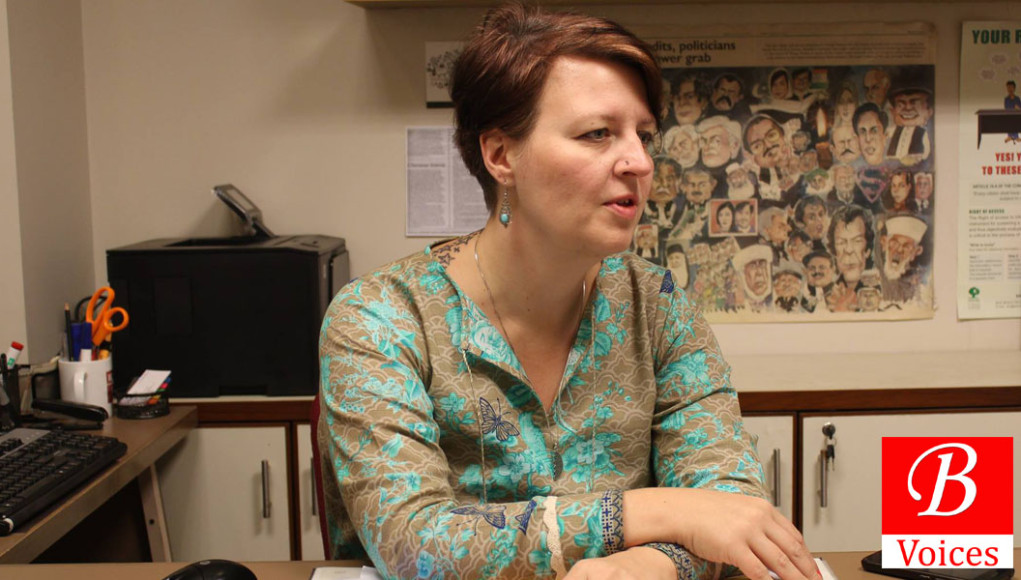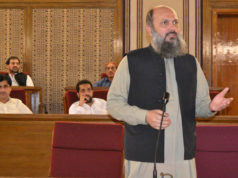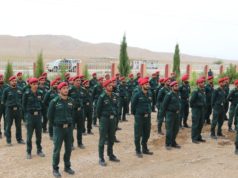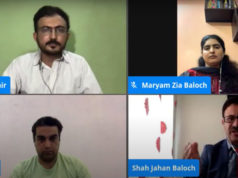Christie Marie Lauder is the Program Manager of Centre of Excellence in Journalism (CEJ). Originally belonging from USA, She is based in Pakistan for several years. Christie Marie Lauder has a professional background in publishing, project management and freelance writing. She has been leading CEJ since its inception in 2014 and acts as a liaison between American and Pakistani partners of CEJ Program.
Adnan Aamir of Balochistan Voices conducted an interview with her.
Adnan Aamir: Please tell us What CEJ project is all about?
Christie Marie Lauder: Centre of Journalism (CEJ) is a joint project International Center for Journalists (ICFJ), Institute of Business Administration (IBA) and the Medill School of Journalism at Northwestern University. All the partners help CEJ in different aspects including budget, sending trainers and planning curriculum. Centre is envisioned as a professional training program for working journalists. In training programs we only take working journalists and employees of government or private businesses who handle media. There is a huge need in Pakistan for professional training of journalists. There are no post-graduate level programs for working journalists and most of the journalists do not have academic background in journalism. Therefore CEJ has been established to fill the vacuum and increase the professional capacity of the journalists in Pakistan. We have an advisory board which consists of recognized names in the profession. We constantly get advice and feedback on how to improve our courses.
What are the specific goals of CEJ and what has been the progress so far?
Primary goal of CEJ is to introduce international standards to Pakistani media. We aim to bring international recognized practices of media to Pakistan and adapt them for local context. We also aim to raise the level of quality of reporting in Pakistani Media. We can’t see the long term impact of CEJ training programs now because we have been operating for just less than a year. We have had tremendous response from participants in training programs. Many of them walked with skills that they did not have before. CEJ grant period will end in 2017 and after that we plan to establish Masters Program in IBA which will be first of its kind in Pakistan.
What has been the response of Pakistani journalists for training programs of CEJ?
A growing number of journalists have showed interest in the training programs of CEJ. We receive a lot of applications for our programs. Participants are excited about the opportunities they get for professional development and capacity building. We take feedback from the participants after end of courses and the feedback of the participants has been very promising.
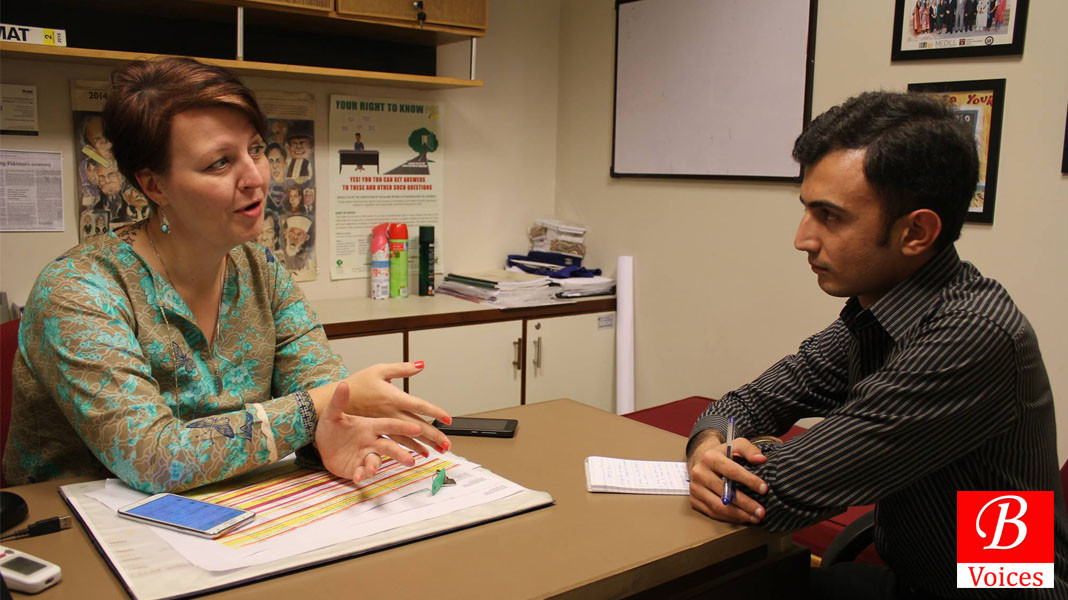
Are there any objective criteria for selection of journalists or it’s up to discretion of Team CEJ?
We have mix of both. We bring people who are working in the field and also those who show interest to learn. Selection criteria differ for each and every course. If we do a print course then priority goes for print journalists and so on. We occasionally make room for students who can be part of these programs as interns but mainly we pull from working journalists. We try to cover journalists out of three main cities of Pakistan; Islamabad, Lahore and Karachi and focus on Balochistan and Khyber Pakhtunkhwa (KP) as well. It’s harder for us to reach out to people out of big cities so whenever we get applications from remote areas we try to bring them in.
What improvements you suggest should be brought in Pakistani media?
I would suggest that improvements are needed in the quality of reporting in press. Colorful language should be avoided and the level of professionalism should be improved. Opinion should be removed from all news stories and only restricted to editorials and op-eds. Editors also need to change the way they manage the papers and have to be more professional in every way. Audiences must always be put in mind when making a decision about the news stories. However, as an outsider I am not better able to suggest meaningful improvement as I am not totally familiar with the situation and my perspective is always going to be different.
What are the future plans for CEJ once the grant period is over?
We will be starting masters program and also continuing the professional training programs. We envision ourselves to be here for a long period of time. Our plans are to gradually build and be able to run more than one program at a time. We plan to develop a fully working News studio, newsroom, radio studio and editing suites. We will not only be a training resource center for journalisms but also allow journalists to use our assets. In future if a journalist is working on a freelance piece or doing a documentary and needs a place for work then we will provide them with the resources. CEJ aims to help journalists beyond training programs. We also plan to offer online training classes for the people who cannot physically attend the programs.
What’s your message to Pakistani journalists who plan to attend training course in CEJ?
We encourage everyone to apply. Obviously, we can’t take everyone who applies but we do our best to take as many candidates as possible. We also encourage journalists from Urdu press to apply for our courses which have Pakistani co-trainers who help in communication and putting things in Pakistani context? So, we do not want anyone to not apply just because he can’t speak English. If any journalist fits the criteria in terms of professionalism then he should apply.
Photo Credits: Madiha Shah Modi
Share your comments!


